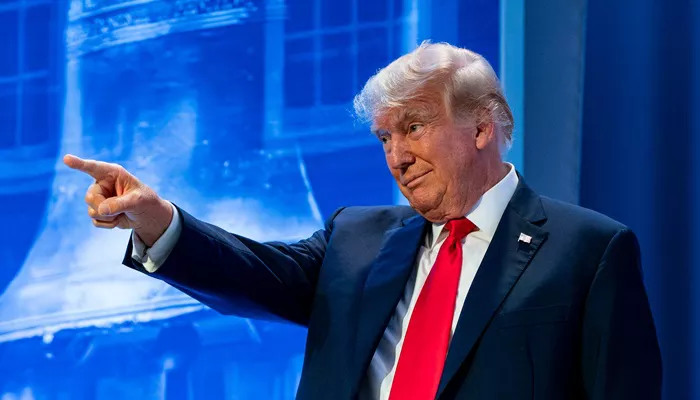President-elect Donald Trump has directed New Jersey Congressman Jeff Van Drew, a prominent critic of offshore wind energy, to draft an executive order aimed at halting offshore wind projects. This move aligns with Trump’s campaign promise to dismantle the offshore wind industry, which he claims is costly and harmful.
Offshore wind energy is a key component of the U.S. transition to a carbon-free electric grid. The power sector accounts for nearly one-third of the nation’s greenhouse gas emissions, which drive climate change. Despite this, Trump has vowed to prioritize fossil fuel production—such as oil, natural gas, and coal—to achieve what he calls the lowest-cost energy and electricity in the world.
In a phone call with Trump about a month ago, Van Drew urged the president-elect to act on his campaign pledge. “I said, ‘Mr. President, we need to move on this.’ He said, ‘Yeah, we definitely do. I agree. I’m against them,’” Van Drew recounted. Trump then instructed him to draft an executive order and submit it to his team.
Van Drew, a Republican, told The Associated Press on Wednesday that he swiftly emailed a draft order to Doug Burgum, Trump’s nominee for interior secretary. The proposed order would impose a six-month pause on offshore wind development from Rhode Island to Virginia. This would allow the incoming interior secretary to review how leases and permits were issued. Van Drew argues that the approval process failed to adequately consider the impacts on the fishing industry, tourism, marine life, and utility costs. He also criticized the reliance on foreign companies to build U.S. wind farms.
The Interior Department oversees offshore renewable energy development through its Bureau of Ocean Energy Management (BOEM). Burgum, who appeared before a Senate committee for his confirmation hearing on Thursday, faced questions about his stance on wind energy. Senator Angus King, an independent from Maine, noted that Burgum’s home state of North Dakota derives over one-third of its electricity from onshore wind. King urged Burgum to convince Trump that wind energy “isn’t all bad.”
Burgum responded by emphasizing the need for consistent energy sources, contrasting them with “intermittent” resources like solar and wind, which fluctuate based on weather conditions. When asked if he would commit to continuing existing offshore wind leases, Burgum said he would review all projects. “If they make sense and are already in law, then they’ll continue,” he said, adding that Trump is concerned about the tax incentives directed toward certain energy forms.
Van Drew declined to share the draft order with the AP, stating it serves as a template rather than a final version. He expects Trump to issue an executive order targeting offshore wind within the first quarter of the year, potentially as early as his first day in office. Van Drew views this as a preliminary step toward a broader moratorium on offshore wind development.
Trump has repeatedly criticized wind turbines, calling them expensive and unsightly. He has also made unsubstantiated claims linking offshore wind projects to whale deaths. In a recent press conference at Mar-a-Lago, Trump reiterated his opposition, stating he would pursue a policy to prevent the construction of wind turbines.
The Biden administration has championed offshore wind as a critical tool to combat climate change, setting ambitious goals to deploy 30 gigawatts of offshore wind energy by 2030—enough to power over 10 million homes—and up to 15 gigawatts through floating wind sites by 2035.
Progress has already been made, with the nation’s first commercial-scale offshore wind farm, South Fork Wind, opening in March 2023 off the coast of New York. The BOEM has also held historic lease sales for offshore wind projects in the Gulf of Mexico, the West Coast, and the Atlantic Coast. In December, the agency approved the 11th commercial-scale offshore wind project, collectively capable of generating over 19 gigawatts of clean energy—enough to power more than 6 million homes.
As Trump prepares to take office, his administration’s approach to offshore wind could significantly impact the nation’s renewable energy goals and its efforts to address climate change.

